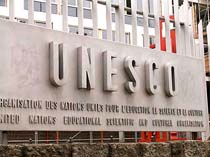 Mongolian delegation headed by the minister of education, E. Otgonbayar held discussions with China about the questions of cultural heritage and concluded an agreement. According to the signed document, now, in a case of submitting an application about entering a cultural heritage into the UNESCO list, both sides are expected to discuss it and come to an agreement, using flexibility and showing respect to one another’s spiritual and cultural heritage. Mongolian delegation headed by the minister of education, E. Otgonbayar held discussions with China about the questions of cultural heritage and concluded an agreement. According to the signed document, now, in a case of submitting an application about entering a cultural heritage into the UNESCO list, both sides are expected to discuss it and come to an agreement, using flexibility and showing respect to one another’s spiritual and cultural heritage. For example, there are research documents which prove that throat singing traditionally developed not just in Mongolia, but also in 15 other contries. Carriers of the traditions and art of throat singing exist in Russian Tuva, Kalmykia, Khakassia, Buryatia, and Yakutia. Moreover, the capital of Tuva – Kyzyl – has a working Center of International Throat-singing.
Observers also connected this diplomatic activity with the fact that last year, China registered with UNESCO the “Geser epic” as its own cultural heritage, despite the fact that this epic, in the opinion of scholars, belongs to several nations of East Asia.
Now the sides agreed discuss these matters and come to an agreement among themselves, recognizing the other’s suggestions and positions when submitting applications to UNESCO about cultural heritages which are present in both countries.
This year, Mongolia plans to spend $66,000 of American dollars on submitting applications to UNESCO for registration of objects of cultural heritage.
During the discussions, the sides agreed to open centers of culture, co-operate in prevention of trans-border market with material cultural heritage of Mongolia and about recognition of diplomas of higher education in both countries.
|
